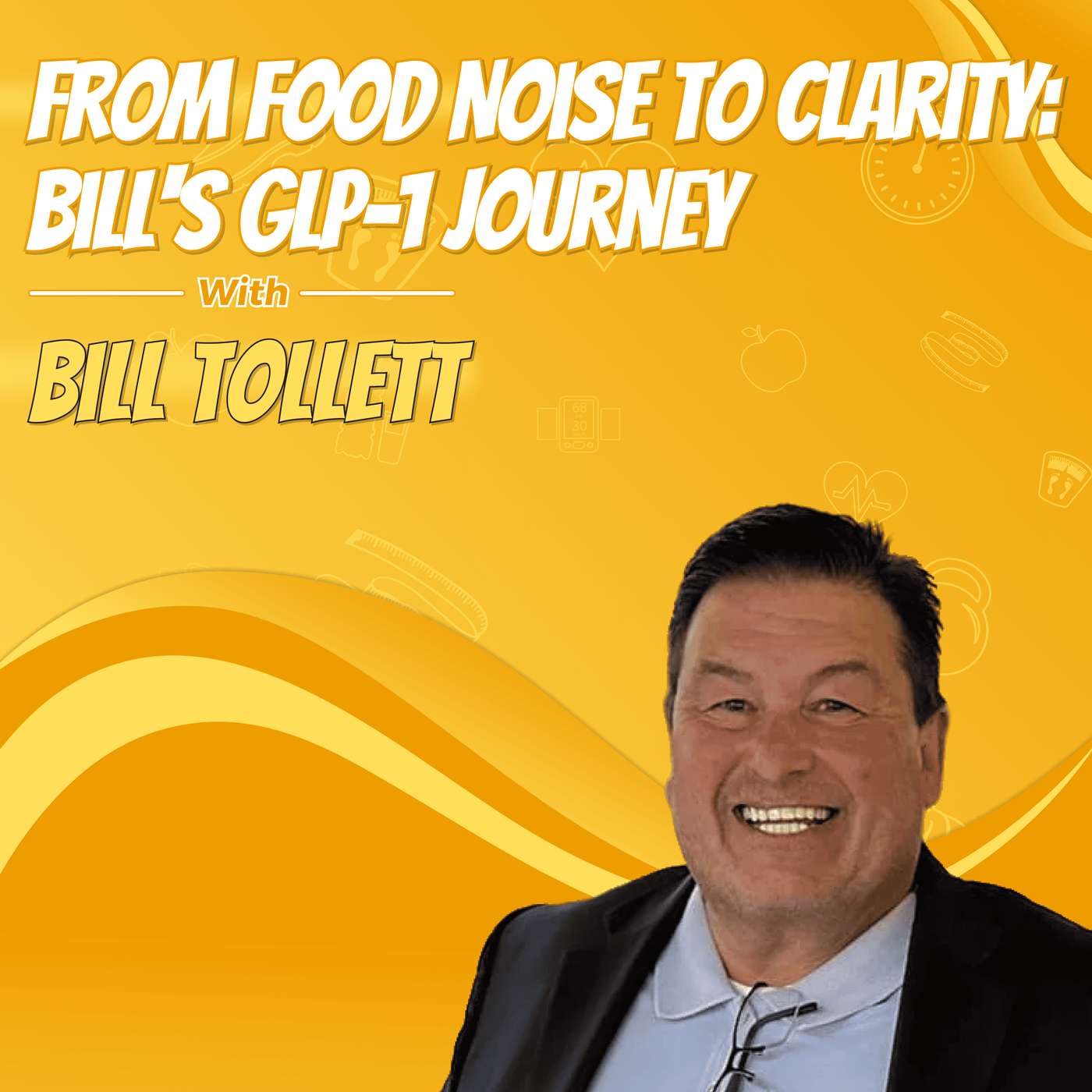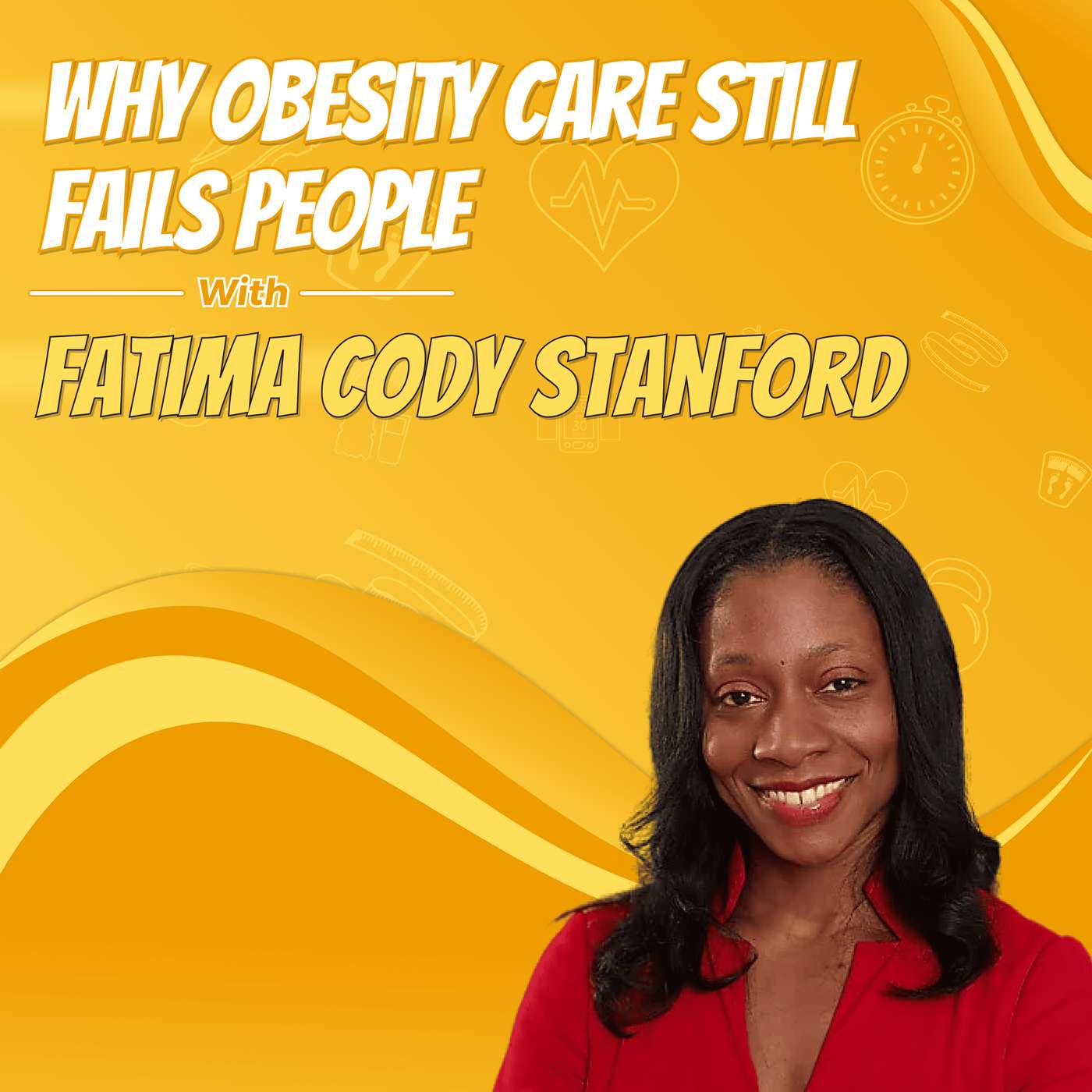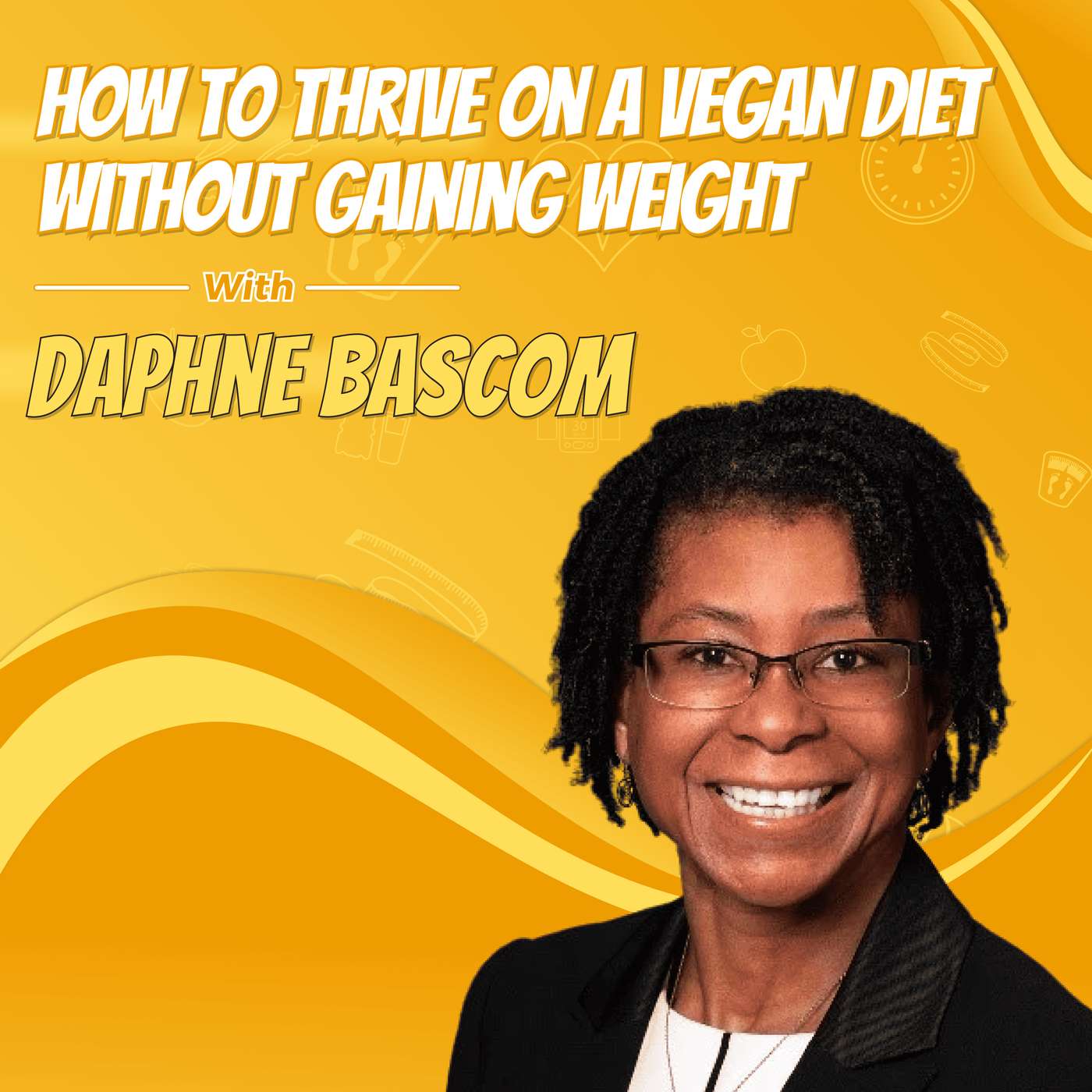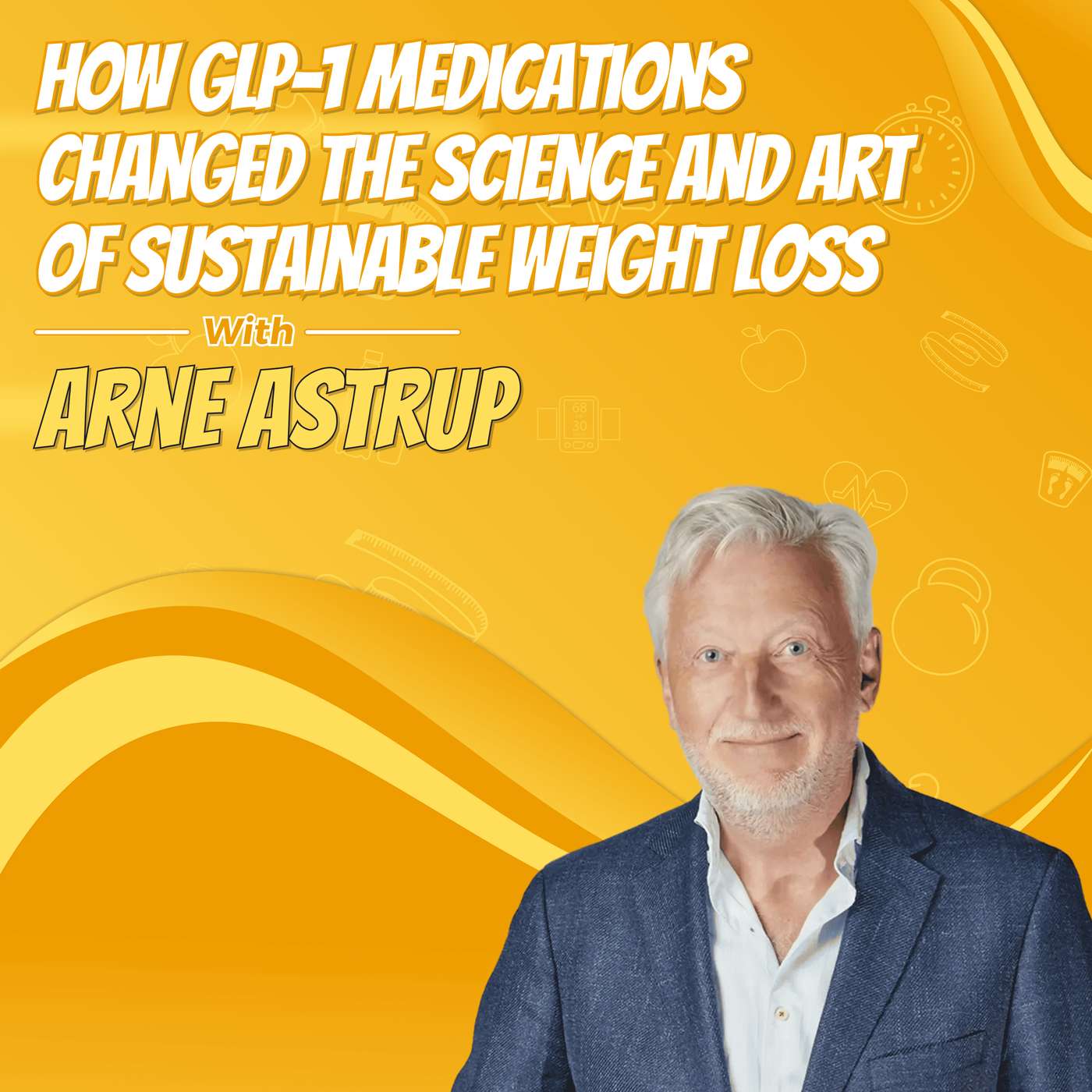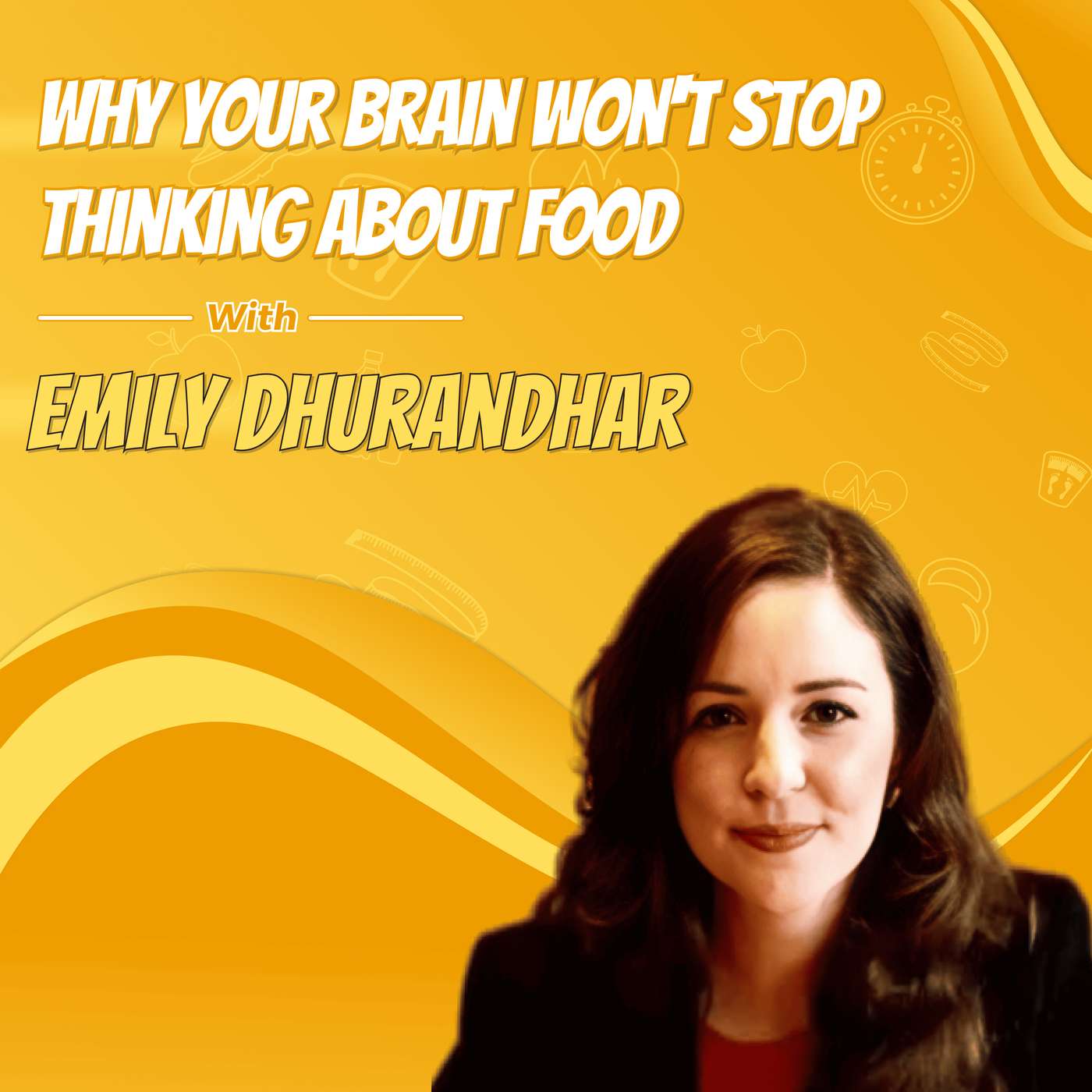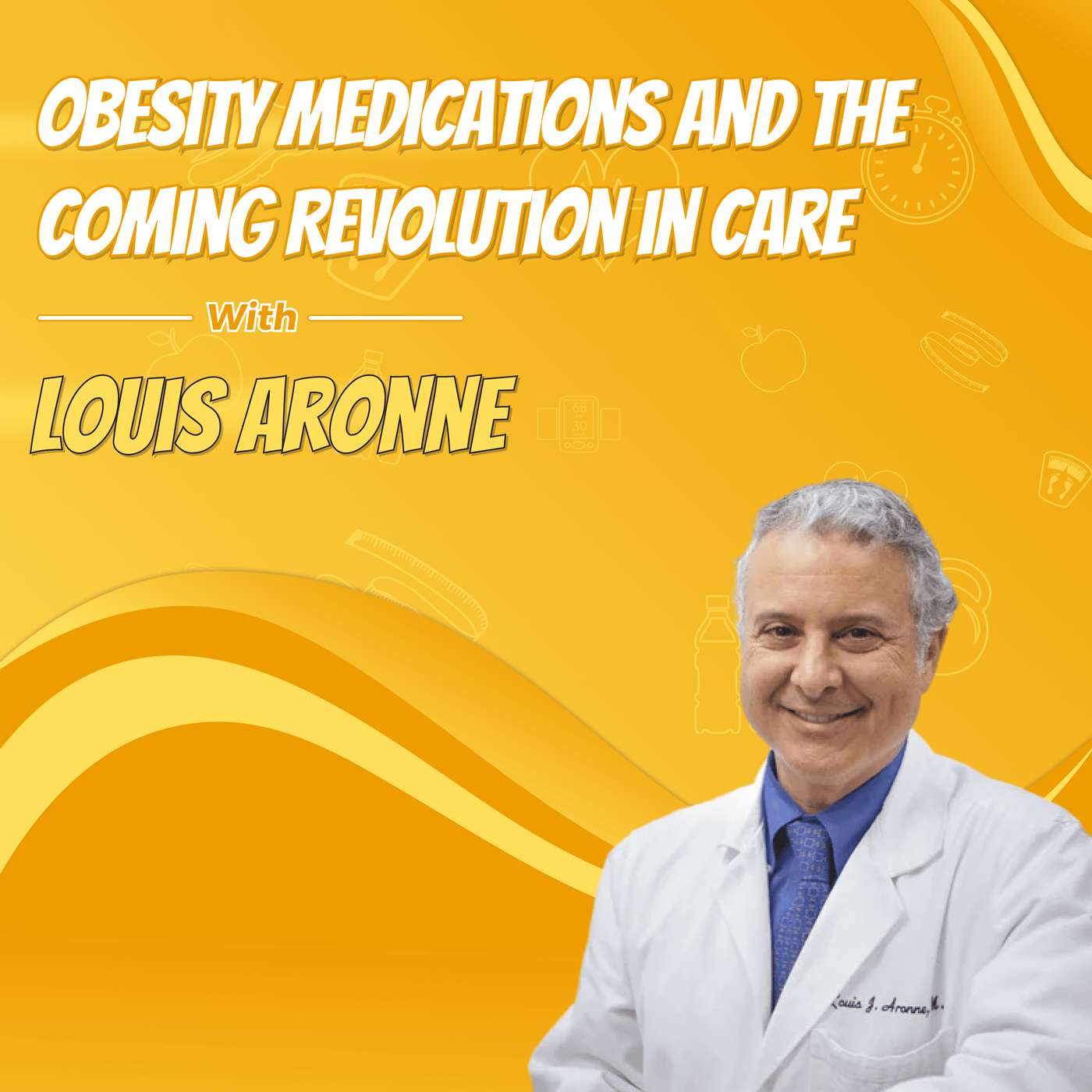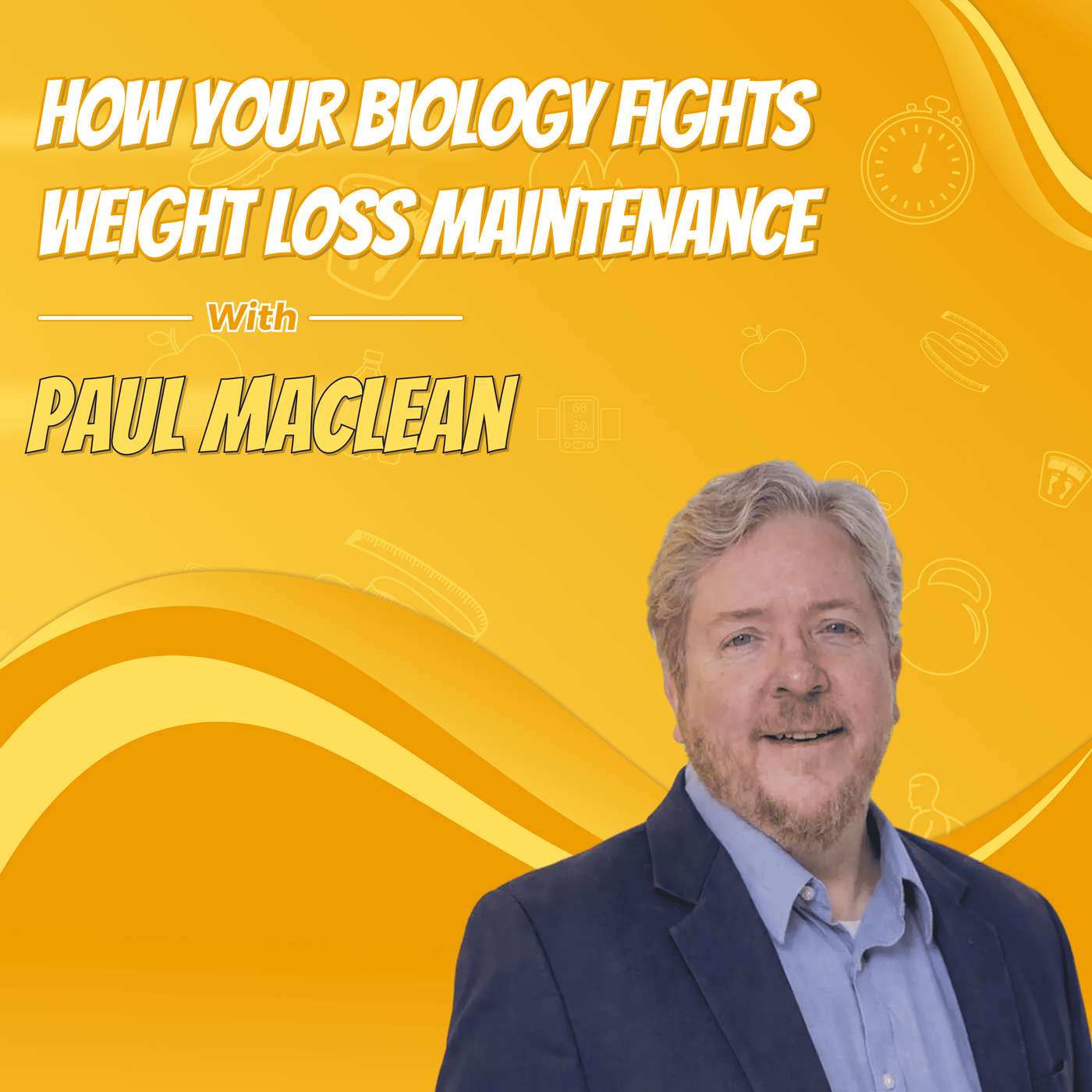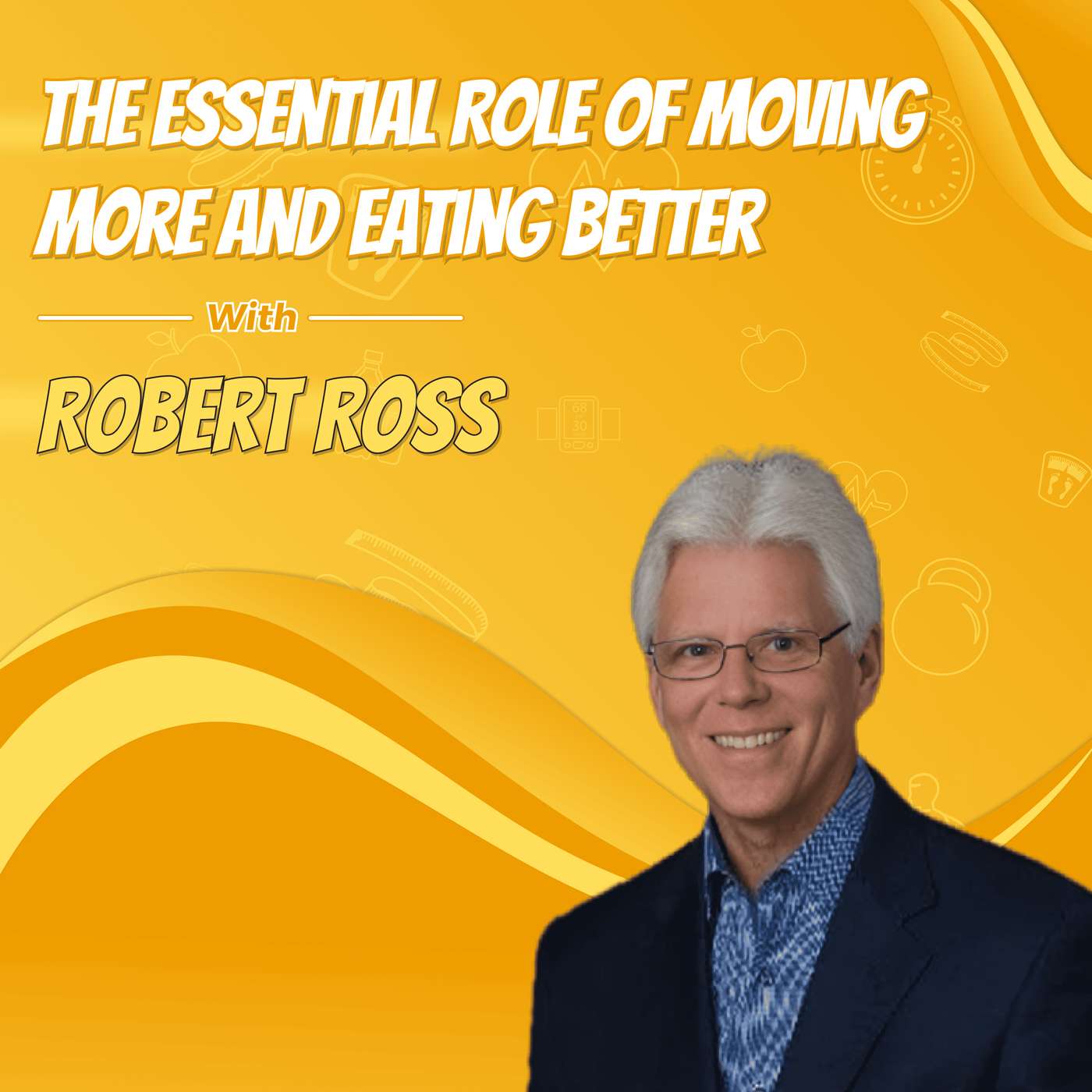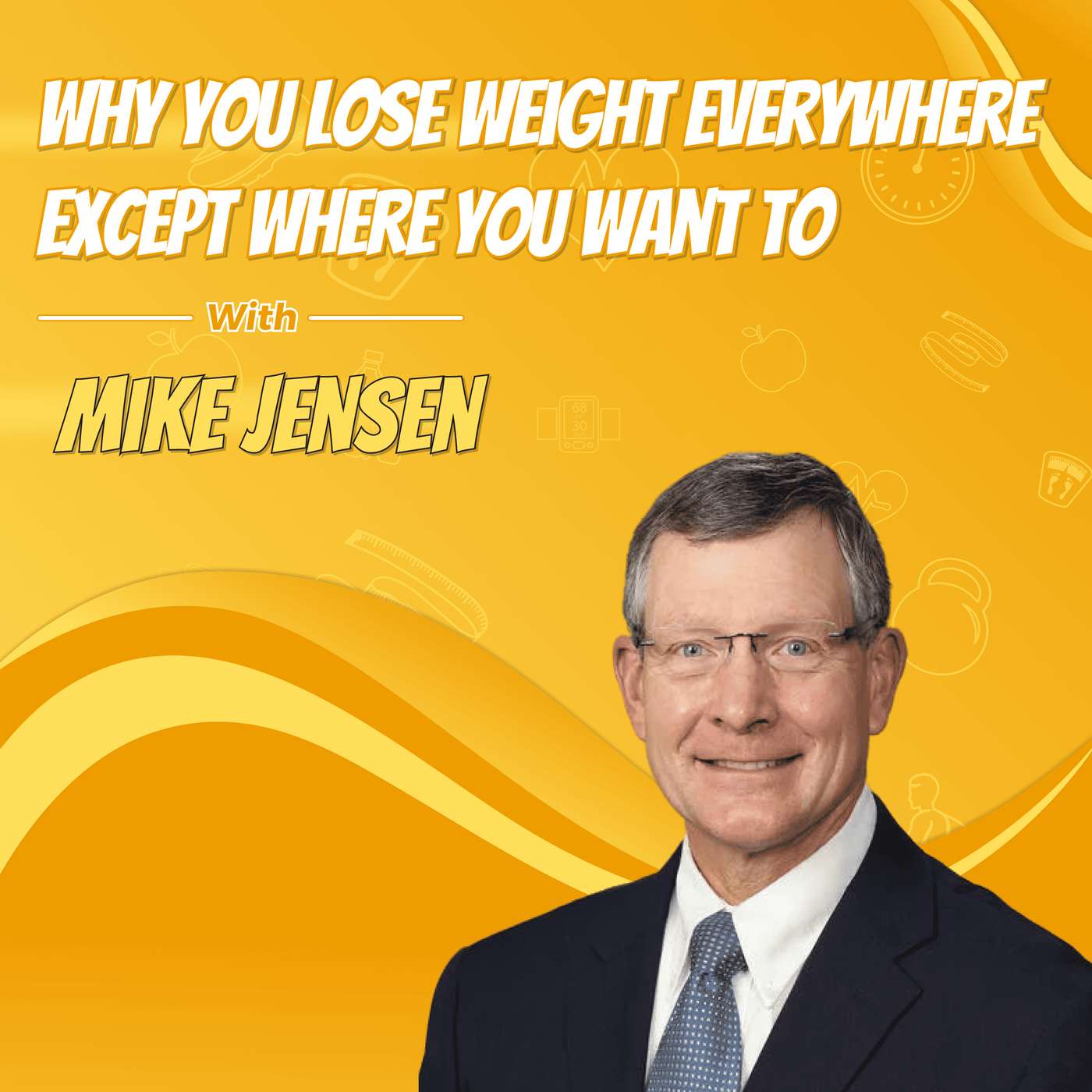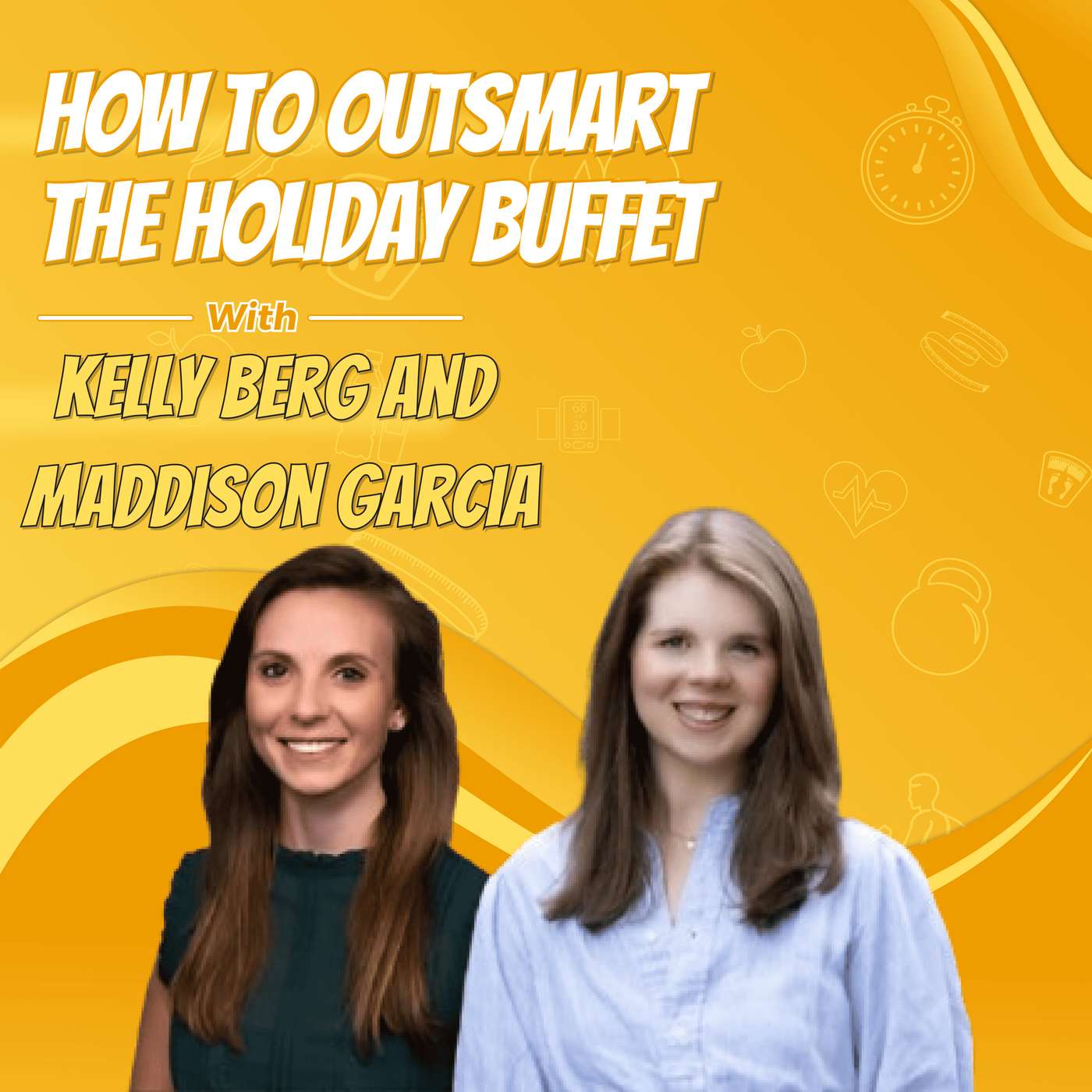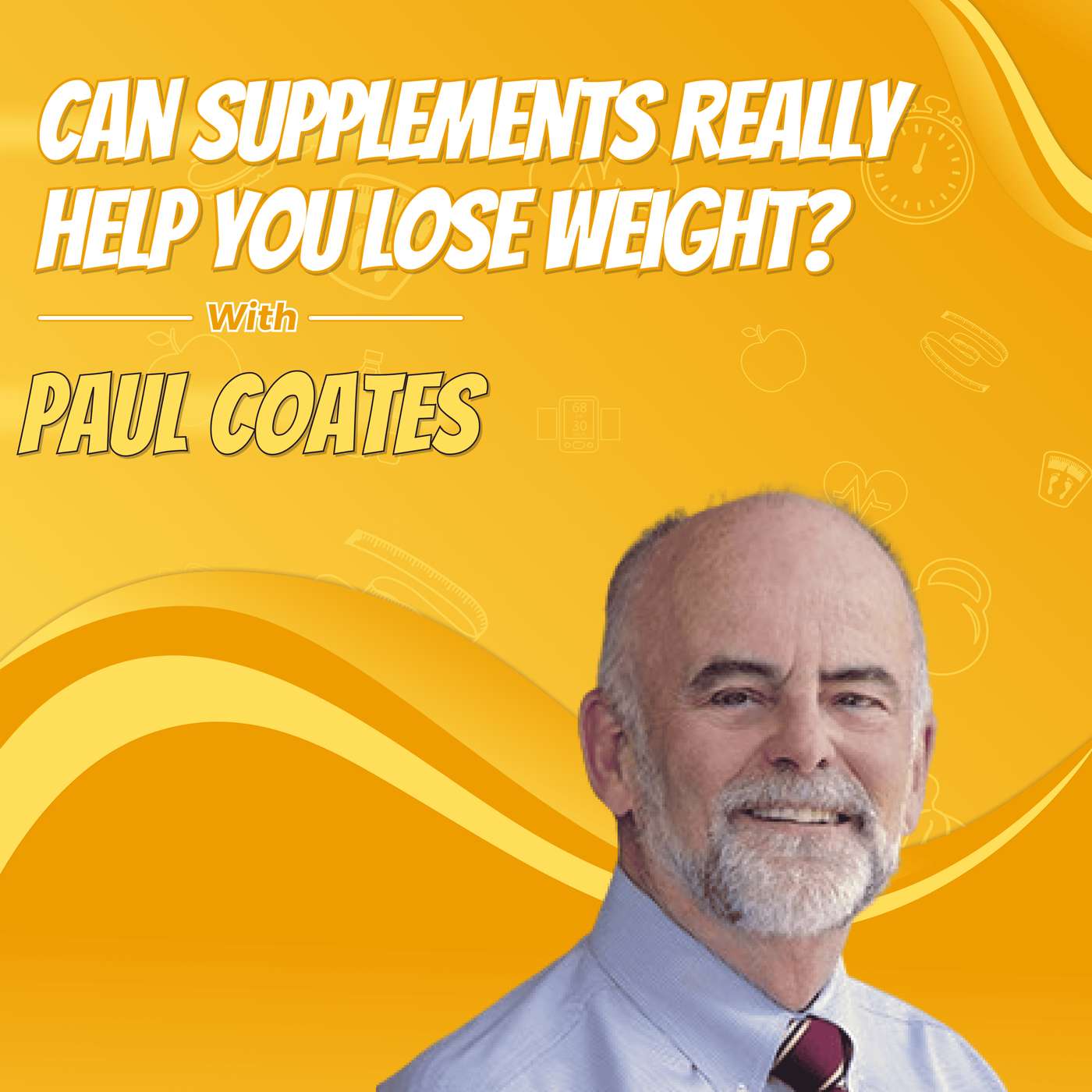Discover Weight Loss And ...
Weight Loss And ...

Weight Loss And ...
Author: Holly Wyatt & James Hill
Subscribed: 27Played: 969Subscribe
Share
© Copyright 2025 Holly Wyatt & James Hill
Description
Your go-to hangout for everything weight loss… and beyond! “Weight Loss and…” is brought to you by the University of Alabama at Birmingham (UAB) and hosted by seasoned experts in weight management, Dr. James Hill and Dr. Holly Wyatt.
We’re your friendly guides through the maze of weight loss, but with a fun twist. We’re not here to preach the latest fad diet or promise a miracle workout. Instead, we’re all about embracing the journey, acknowledging there’s more than one way to hit your health goals, and having a good laugh while we’re at it.
We get it: weight loss can be tough, and sometimes pretty serious business. But why can’t it also be enjoyable? With a side of humor, we’ll bring you science-backed insights, real-life stories, and some hard truths. (Spoiler alert: there’s no magic answer - but that doesn’t mean we can’t find what works best for you.)
“Weight Loss and…” is your inclusive space to explore, question, and learn — and to feel part of a community along the way. This isn’t just about shedding pounds. It’s about gaining perspective, building better habits, and enjoying the ride.
So if you’re up for honest conversations about weight loss - spiced with a little science and a whole lot of fun - pull up a chair, plug in those earbuds, and let’s see where this journey takes us.
We’re your friendly guides through the maze of weight loss, but with a fun twist. We’re not here to preach the latest fad diet or promise a miracle workout. Instead, we’re all about embracing the journey, acknowledging there’s more than one way to hit your health goals, and having a good laugh while we’re at it.
We get it: weight loss can be tough, and sometimes pretty serious business. But why can’t it also be enjoyable? With a side of humor, we’ll bring you science-backed insights, real-life stories, and some hard truths. (Spoiler alert: there’s no magic answer - but that doesn’t mean we can’t find what works best for you.)
“Weight Loss and…” is your inclusive space to explore, question, and learn — and to feel part of a community along the way. This isn’t just about shedding pounds. It’s about gaining perspective, building better habits, and enjoying the ride.
So if you’re up for honest conversations about weight loss - spiced with a little science and a whole lot of fun - pull up a chair, plug in those earbuds, and let’s see where this journey takes us.
116 Episodes
Reverse
If you're on a GLP-1 medication or thinking about starting one, there's a good chance you're only seeing half the picture. The media is full of before-and-after stories, but what happens after the after? Most people don't find out until it's too late.The truth is, GLP-1 medications are genuinely remarkable tools. But tools only work when you know how to use them. And right now, millions of people are stopping their medications, regaining the weight, and walking away convinced the drugs "didn't work" when the real issue was never the medication at all. Join Holly and Jim as they lay out the 12 things every GLP-1 user needs to understand to make their success last. Whether you're just starting out, thinking about stopping, or already dealing with regain, this episode could change everything about how you approach the game.Discussed on the episode:Why weight management is a forever game and why knowing that isn't enoughThe phase of weight loss that experts have been leaving out for years (until now)What happens in your brain and body when you stop GLP-1 medication cold turkeyWhy Oprah's experience with willpower is more instructive than you might thinkThe one thing Holly says everyone wants, and why chasing it is setting you up to failWhat "a desirable body state" actually means (hint: it's not the number on the scale)The Four E's: the framework for making healthy habits actually stick long-term.Why your environment is just as powerful as your physiology and what you can actually do about itWhat Jim tells people who come off medication without a plan (this one is hard to hear)The question every listener should ask themselves before they ever step on a scale again
Weight loss isn’t just about the number on the scale. It’s about reclaiming your life. When you’ve been carrying excess weight for years, it’s easy to start accepting limitations as your new normal. Skipping events because of walking. Staying in the car while others explore. Wondering if you’ll see your future grandchildren grow up.But what if the right support could help your body work with you instead of against you? What if losing weight didn’t have to mean constant hunger and willpower battles? Join Holly and Jim as they sit down with Bill Tollett, a former school principal and coach who lost over 120 pounds and rediscovered what living fully actually means.This conversation goes beyond the mechanics of weight loss. Bill shares the mental shifts that surprised him most, the challenges of navigating insurance hurdles, and why he now describes himself as feeling “capable” for the first time in decades. Whether you’re considering medication, struggling with where to start, or simply curious about what sustainable change actually looks like, Bill’s story offers honest insights into a journey that’s transformed not just his body, but his entire approach to life.Discussed on the episode:Why one doctor’s blunt comment became the catalyst for changeThe unexpected mental clarity that came with medication (and why it felt like being a superhero)How Bill built exercise into his day without joining a gym or running marathonsThe three different reactions people have when they see his transformationWhat “food noise” really feels like and what life is like when it quiets downWhy Bill says this isn’t cheating, it’s “leveling the playing field.”
Have you ever done everything right, eaten well, moved your body, maybe even started a new medication, and still felt like the system wasn’t working for you? You’re not alone. And the reason might not be what you think.Join Holly and Jim as they sit down with Dr. Fatima Cody Stanford, an obesity medicine physician and associate professor at Harvard Medical School, and one of the boldest voices shaping how we think about obesity care today. Dr. Stanford treats obesity as the complex, chronic disease it truly is, and she’s not afraid to call out the bias, broken systems, and outdated myths that get in the way. This is a conversation that will change the way you see weight loss, not just as something you do, but as something you deserve support with.Discussed on the episode:The shocking age at which weight bias begins and why it’s not where you’d expectWhy over 80% of physicians carry bias toward patients with excess body weight, and what one doctor is doing to flip the scriptThe real reason GLP-1 medications aren’t the magic bullet and why that’s actually okayWhy some patients respond brilliantly to these drugs and others don’t, and what you absolutely cannot do to change thatThe one nutrient and one type of exercise that matter most when you’re losing weight on medicationWhat happens when insurance pulls the rug out, and the creative strategies doctors use to keep patients on trackThe “Ozempic baby” phenomenon: what the early science is actually showingWhy the new oral Wegovy pill might not be the game-changer everyone is hoping forThe grocery store moment that completely changed one doctor’s understanding of obesity
New Year’s resolutions often start with motivation and willpower, but how long does that really last? What if the problem isn’t your discipline, but the world you’ve built around yourself? Your refrigerator, your bedroom setup, even the people you spend time with, are quietly shaping every choice you make.Join Holly and Jim as they reveal why an environmental detox might be the smartest move you can make this year. Forget juice cleanses and deprivation, this is about redesigning your space and social circle to make healthy choices the easy ones. You’ll learn how your physical surroundings impact everything from late-night snacking to your morning mindset, and why even GLP-1 users shouldn’t skip this critical step.Whether you live in a “food desert” or work in a toxic office environment, you’ll walk away with practical strategies to take control of what you can and create a micro-environment that actually supports your goals.Discussed on the episode:Why willpower works great for 4-6 weeks, then crashes spectacularly.The sneaky reason people on GLP-1s should detox their environment now (before it’s too late)The three-step detective process for identifying what’s quietly sabotaging youHow removing your phone charger from the bedroom could transform your sleepThe two-column social mapping exercise that reveals who’s really supporting your goalsWhy telling your spouse to “eat healthier” never works, and what doesThe clever strategy for influencing the people you can’t (or won’t) remove from your lifeWhat Holly’s new Peloton treadmill and hydroponic herb garden reveal about smart environmental designHow to create a supportive micro-environment even in Alabama’s summer heat or without neighborhood sidewalksResources and links mentioned:Book: Losing the Weight Loss Meds by Holly Wyatt and James Hill (weightwisdom.com)
Going vegan for weight loss? You might be in for a surprise. Despite what social media influencers claim, switching to a plant-based diet doesn’t guarantee the pounds will melt away. In fact, many vegans struggle with weight gain even when they think they’re eating healthy.The truth is, whether you’re eating steak or tofu, the same principles of weight management still apply. You can absolutely lose weight and thrive on a vegan diet, but it requires the same intentionality, planning, and understanding of nutrition fundamentals as any other approach. The good news? It’s never been easier to succeed as a plant-based eater when you know what to focus on.Join Holly and Jim as they sit down with Dr. Daphne Bascom, Chief Operating Officer of The Vegan Gym and an MD/PhD who brings a refreshingly balanced perspective to plant-based nutrition. Daphne shares why she became vegan later in life, busts common myths about vegan diets and weight loss, and reveals the surprising similarities between coaching vegans and omnivores. You’ll discover practical strategies for managing weight on a plant-based diet, learn which “healthy” vegan foods might be sabotaging your goals, and find out why mindset matters just as much as what’s on your plate.Discussed on the episode:The biggest myth about vegan diets that keeps people stuck and gaining weightWhy being vegan doesn’t make you “impervious to chronic disease.”The surprising food Daphne keeps in her purse when traveling (and why you might want to try it)How to navigate restaurants, airports, and social situations without derailing your goalsThe one non-negotiable supplement every vegan needs to takeWhether plant-based proteins are really inferior for building muscle and recoveryThe “Oreo vegan” trap and how to avoid ultra-processed plant-based foodsWhy nuts might be sabotaging your weight loss (even though they’re healthy)The energy density principle that works whether you’re vegan or notHow the anabolic window for protein has evolved (it’s longer than you think)Resources and Links:The Vegan Gym: https://www.thevegangym.com/Thrive on Plants Podcast: https://podcasts.apple.com/us/podcast/thrive-on-plants/id1793550910Thrive on Plants Community: https://www.skool.com/thrive-on-plants/aboutThe Vegan Gym Podcast: https://podcasts.apple.com/us/podcast/the-vegan-gym-podcast/id1358557895Cronometer App: https://cronometer.com/Game Changers Documentary: https://gamechangersmovie.com/Books mentioned: How Not to Die and How Not to Age by Dr. Michael Greger: https://www.amazon.com/Hardcover-Cookbook-Michael-Greger-Collection/dp/9124302686Losing the Weight Loss Meds by Holly Wyatt and James Hill: https://www.weightwisdom.com/
The GLP-1 medications transforming weight loss didn’t appear overnight. They’re the result of decades of groundbreaking research that fundamentally changed how we understand appetite and obesity. But how did scientists first discover that this hormone could help people lose weight? And what does this history mean for anyone using these medications today?Join Holly and Jim as they sit down with Dr. Arne Astrup, one of the pioneering researchers who helped uncover GLP-1’s role in appetite regulation back in the 1990s. Dr. Astrup has spent over three decades at the forefront of obesity research at the University of Copenhagen and the Novo Nordisk Foundation. In this fascinating conversation, he takes us back to when obesity was still seen as a willpower problem, reveals the serendipitous collaboration that led to discovering GLP-1’s satiety effects, and shares critical insights about using these medications safely and effectively.Whether you’re currently using GLP-1 medications, considering them, or simply curious about the science, this episode offers essential perspective from someone who’s witnessed the entire journey from early physiology experiments to today’s real-world treatments. You’ll discover why lifestyle still matters in the era of highly effective medications, and walk away with a deeper understanding of both the promise and the limitations of these groundbreaking drugs.Discussed on the episode:The surprising mindset shift in the 1990s that changed how medicine views obesityWhy a diabetes researcher and an appetite scientist became unlikely collaboratorsThe first human experiment that proved GLP-1 reduces hunger (and the lunch buffet that made it possible)Why GLP-1 medications are so much “cleaner” than previous weight loss drugsThe protein malnutrition risk that doctors aren’t talking about enough.Why half of patients stop taking these medications within months, and what that meansThe one combination that could let you reduce or stop GLP-1s without regaining weightWhy calling these medications “the easy way out” completely misses the pointWhat a leading researcher wants to accomplish after decades of groundbreaking work
Food noise. If you’ve heard the term, you probably know exactly what it means. If you haven’t, you might be about to have a lightbulb moment. It’s that relentless mental chatter about food, not hunger, not cravings, but constant, unwanted thoughts that just won’t quit.For years, people struggling with this phenomenon didn’t even have words for it. They thought it was a willpower problem. It wasn’t. And now, thanks to groundbreaking research, we finally have a way to understand, measure, and potentially treat this invisible burden that affects people across the weight spectrum.Join Holly and Jim as they sit down with Dr. Emily Dhurandhar, Director of Research Special Projects at Texas Tech University Health Sciences Center, and lead author of the RAID-FN Inventory, the first validated tool to measure food noise. Discover why patients, not clinicians, coined this term, how GLP-1 medications are revealing what many have silently endured, and what the future holds for treating this pervasive issue.Discussed on the episode:Why food noise is completely different from normal thoughts about foodThe surprising discovery about who experiences food noise (hint: it’s not just people with obesity)What turning off a kitchen fan has to do with understanding these medicationsHow bodybuilders and endurance athletes might experience food noise differentlyWhy your environment in the 1940s versus today changes everythingThe one word clinicians need to stop assuming about food noiseWhat to do if you think you’re experiencing this, but your doctor has never heard of it
For decades, people with obesity were told the solution was simple: eat less, move more, try harder. When that didn’t work, they were blamed. But science has always told a different story: obesity is a chronic, biologically driven disease, just like diabetes or hypertension. And right now, we’re witnessing the most significant transformation in obesity medicine that has ever happened.The new GLP-1 medications like Wegovy and Zepbound are making headlines everywhere, but with breakthrough treatments come big questions. Who should take them? How do you know which one is right for you? What happens when you stop? And with millions of people getting these medications online or from providers with little expertise, how do you ensure you’re getting safe, effective care?Join Holly and Jim as they sit down with Dr. Louis Aronne, one of the true pioneers who shaped this revolution from the very beginning. For over 30 years, Dr. Aronne has been on the front lines, treating patients and conducting research at one of the premier obesity centers in the country. He’ll share the real story behind these medications, what he’s learned from treating 9,000 patients, and where obesity treatment is heading next.Discussed on the episode:The mouse experiment from the 1980s that changed everything about how we understand weightWhy some people feel amazing on Wegovy while others do better on ZepboundThe creative dosing strategies that help patients who can’t tolerate standard dosesWhat happens to the majority of people who stop taking GLP-1 medicationsThe surprising parallel between treating obesity and treating high blood pressureWhy registered dietitians could be the perfect providers for obesity careThe 15 new medications coming in the next five years that will transform accessHow these medications prevent 94% of diabetes cases in people with prediabetesThe simple eating strategy that works almost like taking medicineWhat it really means when people say taking medication is cheating
You’ve done it. You’ve lost the weight. But then something shifts. The hunger gets louder. Food becomes more tempting. The scale starts creeping back up. You’re doing everything right, yet your body seems to be fighting you at every turn. If this sounds familiar, you’re not alone, and more importantly, it’s not your fault.The truth is, after weight loss, your body launches a powerful biological response designed to bring that weight back. It’s not about willpower or discipline. It’s about survival mechanisms that were built for a world without grocery stores on every corner. Understanding what’s actually happening inside your body after weight loss changes everything from how you approach maintenance to how you talk to yourself when things get hard.Join Holly and Jim as they sit down with Dr. Paul MacLean, one of the world’s leading experts on the biology of weight regain. You’ll discover why keeping weight off requires completely different strategies than losing it, what your metabolism is really doing after weight loss, and the science-backed tools that can help you succeed long-term despite your biology working against you.Discussed on the episode:The powerful rubber band analogy that explains why your body fights to regain weightWhat’s really happening at the cellular level when you lose weight (and why it persists)Why the speed of weight loss may matter less than you thinkThe controversial truth about whether metabolic adaptation ever goes awayOne scientist’s personal journey with weight struggle and GLP-1 medicationsThe myth about starting with a “clean slate” after weight loss
You’ve heard it everywhere: “You can’t outrun a bad diet.” Or maybe it’s “Exercise doesn’t matter for weight loss.” Or wait, is it “Just lift weights and you’ll be fine”? The conflicting advice is enough to make anyone throw their hands up in frustration. What if the real answer isn’t choosing between diet and exercise, but understanding how they work together?Join Holly and Jim as they sit down with Robert Ross, one of the rare researchers who has spent over three decades studying both sides of the equation. Ross is a professor in the School of Kinesiology and Health Studies at Queen’s University in Ontario, Canada, and he’s led groundbreaking research on how exercise, diet, and body fat interact, especially that stubborn visceral fat that drives metabolic disease. His work has shaped clinical guidelines and challenged long-held assumptions about weight loss. You’ll discover why the bathroom scale might be lying to you, what your belt buckle reveals that the scale doesn’t, and why being a “non-responder” to exercise might be a myth.Get ready for a conversation that will fundamentally change how you think about managing your weight, whether you’re considering GLP-1 medications, struggling to keep weight off, or just trying to figure out if you should be doing cardio or lifting weights.Discussed on the episode:Why the bathroom scale has done more harm than good in obesity managementThe belt buckle test that reveals more than any scale ever couldWhat happens to visceral fat when you exercise without losing weightThe truth about exercise “compensation”: Do you really eat more when you work out?Why 5% weight loss being “clinically meaningful” might be the wrong message.How cardiorespiratory fitness protects your health even if you have obesityThe intensity question: Does working harder actually matter for fat loss?What we’re losing (literally) when we only focus on GLP-1 medicationsThe myth of exercise “non-responders” and what the data really showsWhy resistance exercise becomes critical as we ageThe one simple movement activity Ross recommends if you only have 10 minutes.
Writing a book isn’t just about putting words on a page. It’s about translating decades of research into something that can actually change lives. After two years of late-night rewrites, deleted chapters, and countless debates over how to explain complex science in simple terms, Holly and Jim are finally ready to pull back the curtain on their new book, Losing the Weight Loss Meds.This episode is different. Instead of diving into weight loss science, Holly and Jim are taking you behind the scenes of their creative process. You’ll hear about the “messy middle” of writing, the chapters they rewrote twenty times, and the moment they realized this book needed to exist now. More importantly, you’ll discover why weight loss maintenance, once the “opposite of sexy,” has suddenly become the most critical challenge facing millions of people.If you’ve ever wondered what it takes to create a science-based guide that works in real life, or if you’re curious about the future of weight management in America, this conversation will give you a front-row seat to both the struggles and the breakthroughs that shaped this groundbreaking book.Discussed on the episode:The surprising moment Holly realized weight loss maintenance was finally having its day.Why don't half of the people stay on weight loss medications for even a yearThe three profiles that help you identify which strategies you need mostThe framework that turns scientific principles into plays you can actually useWhat happens to our country if we win (or lose) the weight maintenance gameThe vulnerable truth about putting your life’s work out into a noisy worldResources Mentioned:weightwisdom.com - Order Losing the Weight Loss Meds, access free resources, and sign up for the January 7th live Zoom Masterclass with Holly and Jim
2026 is about to bring a massive surge of people starting GLP-1 medications. Maybe you're one of them. These powerful drugs can deliver incredible weight loss results, but here's what nobody talks about: starting the wrong way can cost you muscle, money, and momentum before you even get going.Most people unknowingly sabotage their success, not because they're doing something wrong, but because no one taught them how to start smart. The difference between struggling and thriving on GLP-1s often comes down to avoiding a handful of critical mistakes in those first few weeks and months.Join Holly and Jim as they reveal the 10 biggest mistakes people make when starting GLP-1 medications and exactly what to do instead. Whether you're about to start your first dose or helping someone else navigate their journey, this episode is your insider roadmap to setting yourself up for the best possible results and avoiding the pitfalls that derail so many others.Discussed on the episode:Why doing it alone could be the costliest mistake you makeThe surprising problem of eating too little on GLP-1s (and why it backfires)When you should start exercising and why waiting is a mistakeThe one thing most people ignore until it's too late (hint: it's not about food)How fast is too fast when losing weight on these medicationsThe simple percentage formula for pacing your weight loss perfectlyWhy body composition matters more than the number on the scaleThe nutrient deficiencies showing up in GLP-1 users and how to prevent themWhat to do differently if you already know you don't want to stay on the meds foreverHolly's personal concern about starting a GLP-1 (even as an expert)Resources mentioned:Download their free guide at www.weightwisdom.com
Ever wonder why you lose weight everywhere except where you actually want to? Or why your body seems to have "favorite spots" for storing fat? It's not in your head, and it's not random.Join Holly and Jim as they sit down with Dr. Mike Jensen, one of the world's leading experts on body fat distribution from the Mayo Clinic. His groundbreaking research has revolutionized how doctors understand fat, revealing that where your body stores it matters just as much as how much you have. You'll discover why some fat depots are actually protective while others signal metabolic trouble, and most surprisingly, what you can actually do about it.This conversation will change how you think about your body. From the simple "pinch test" that reveals your visceral fat status to the unexpected truth about hip and thigh fat being beneficial, Dr. Jensen shares insights that could transform your approach to weight management and metabolic health.Discussed on the episode:The surprising reason why having fat on your hips and thighs is actually good for your healthA simple at-home test to determine if you have dangerous visceral fat (hint: it involves pinching)Why two people with identical weight can have completely opposite health risksThe "fall guy" theory that explains why visceral fat accumulates in the first placeWhat happens to your fat distribution as you age (and why elderly people often have thin limbs)The one type of exercise that may specifically target visceral fatWhy liposuction doesn't improve metabolic health despite removing 20+ pounds of fatThe concerning truth about GLP-1 medications and what happens when people stop taking themHow stress response styles (fight vs. freeze) may determine where you store fatThe easiest habit change that reliably reduces visceral fat
The holidays are here, and so is the annual tug-of-war between enjoying festive foods and dreading the scale come January. But what if you didn't have to choose? What if you could indulge in grandma's famous pie, raise a glass with loved ones, and still walk into the new year feeling great?Join Holly and Jim as they tackle the science behind holiday weight gain and, more importantly, how to outsmart it. They're bringing in reinforcements this time: Kelly Berg and Maddison Garcia from UAB's Metabolic Kitchen share clever swaps, simple tricks, and dietitian-approved hacks that cut calories without cutting the joy. From reimagining your cocktail to rethinking your plate size, you'll walk away with strategies that actually work in the real world.Discussed on the episode:The sneaky reason those first few post-holiday pounds might not be what you thinkA "tasting plate" strategy that lets you try everything guilt-freeThe dessert hack that slashes calories by half (and still satisfies your sweet tooth)Why your plate size matters more than your willpowerA simple mocktail switch that saves you hundreds of caloriesThe mac and cheese upgrade that adds nutrition without sacrificing comfortHow to handle food pushers without hurting feelingsA post-feast recovery plan that doesn't involve starving yourselfThe one holiday food each host and guest admits they can't resist
You're doing everything right. You've been consistent with your plan, staying active, watching what you eat. But then it happens, the scale refuses to budge. For days. Then weeks. The frustration creeps in, and suddenly you're wondering if all your effort is even worth it.Here's the truth: when your weight loss stalls, it doesn't mean you've failed. It means your body is doing exactly what it's designed to do. The plateau you're experiencing isn't a roadblock. It's actually a sign that something important is happening beneath the surface.Join Holly and Jim as they dive into the science of weight loss plateaus. You'll discover why plateaus happen to everyone, what's really going on in your body when the scale stops moving, and most importantly, the strategic "cards" you can play to break through and keep progressing toward your goals.Discussed on the episode:The surprisingly long period you need to wait before you can actually call it a plateauWhy people with larger bodies don't have slower metabolisms (this myth needs to end)The hormone shifts that make your body fight back as you lose weightHow GLP-1 medications are pushing plateaus from 3-6 months to over a yearThe "cards" you can play when your weight stops moving, and which one to try firstWhy simplifying your meals might be more powerful than you thinkThe controversial science debate about "adaptive thermogenesis"When a plateau is actually your body telling you it's time for weight loss maintenanceThe surprising "vacation strategy" that can unstick a stubborn plateauWhy Holly hits plateaus all the time (and what she does about it)
What if you could sit down with your younger self and share everything you've learned about weight loss? Not the textbook advice, but the hard-won wisdom that only comes from living it. The kind of insights that make you think, "I wish someone had told me this years ago."Join Holly and Jim as they share powerful reflections from state-of-slimmers and listeners who've been through the journey. You'll hear honest, transformative advice about what really matters when it comes to losing weight and keeping it off. These aren't just tips, they're the truths people discovered about themselves along the way.This episode will shift how you think about your own journey. Whether you're just starting out or looking for that missing piece, you'll find wisdom here that could change everything.Discussed on the episode:The mind state shift that separates temporary results from lasting changeWhy "progress over perfection" might be the most important thing you'll ever learnThe surprising connection between self-care and stress eating (and why it matters most when you're busiest)How movement became a way of life for successful maintainers and what they wish they'd known soonerThe truth about scales, food journals, and other tools you might be using all wrongWhy visualizing your goals isn't just feel-good advice, it's actually rewiring your brainWhat Jim would tell his younger researcher self (hint: it took him decades to figure this out)
Ever wondered why your body does strange things during weight loss, but felt too awkward to ask? You're not alone. From unexpected physical changes to confusing emotional responses, weight loss brings surprises nobody warns you about. These unspoken questions deserve genuine answers, free from judgment and shame.Join Holly and Jim as they tackle the questions people whisper about but rarely say out loud. They're diving into the weird body stuff, the mental games, and the relationship shifts that come with losing weight. Whether it's why certain areas change first, how to handle friends who seem threatened by your progress, or feeling like a fraud when people compliment you, this episode goes there.If you've ever had a question about weight loss that felt too personal or too embarrassing to ask, this conversation is for you. Holly and Jim bring science, compassion, and a healthy dose of vulnerability to topics most experts avoid.Discussed on the episode:The fascinating biochemistry of where fat actually goes when you lose itWhy some body parts seem to change before others (and why you can't control it)The unexpected reason you might feel colder after losing weightWhy does your mind take longer to catch up than your body doesThe truth about why we sometimes underreport what we've eaten to othersHow to handle partners or friends who seem threatened by your successWhy the fear of regaining weight actually means something positiveThe surprising ways relationships shift when your body changesWhy you might still reach for larger clothes even though they don't fitThe question that caught Jim completely off guard (involving sexual positions and calorie burn)Send your awkward, embarrassing, or "too weird to ask" weight loss questions to Holly and Jim for their next episode!
The supplement aisle seems to promise everything: rapid fat burning, appetite suppression, effortless weight loss. With billions of dollars spent annually and 60% of Americans taking supplements regularly, the questions are endless. Do they actually work? Are they safe? And how do you separate the science from the marketing hype?Join Holly and Jim as they tackle the complex world of weight loss supplements with one of the nation's leading experts. You'll discover why the supplement industry operates so differently from pharmaceuticals, what the research really says about popular ingredients, and how to make informed decisions in a marketplace flooded with big promises but limited oversight.Their guest, Dr. Paul Coates, spent nearly two decades as director of the NIH Office of Dietary Supplements, where he guided national research priorities and consumer education. He served as president of the American Society for Nutrition and is the lead editor of the Encyclopedia of Dietary Supplements. If anyone can cut through the confusion, it's Paul.Discussed on the episode:The surprising statistic about how many Americans use supplements dailyWhy studying supplement combinations creates an almost impossible research challengeThe red flags to watch for when companies cite "research" to support their productsHow the regulatory framework for supplements differs dramatically from prescription drugsThe cautionary tale of ephedra and what it teaches us about "natural" ingredientsWhich supplements have enough research to show modest promise for weight managementWhy expecting huge results from supplements sets you up for disappointmentThe importance of discussing supplement use with your healthcare providerHow to spot products that may contain unlisted ingredients or inaccurate dosingReal-world advice on whether it's worth trying supplements and where to start safelyResources Mentioned:NIH Office of Dietary Supplements: https://ods.od.nih.gov/
You've got questions. Lots of them. And if you've been trying to lose weight or keep it off, chances are you've Googled these same burning questions at 11 p.m., desperately searching for answers that actually make sense.From "Do I really have to give up bread?" to "What do I do when the scale isn't moving?" - these are the questions that keep showing up in Holly and Jim's clinics, programs, emails, and even chance encounters at the grocery store. The questions that make you laugh, make you think, and the ones you're probably too embarrassed to ask out loud but secretly wonder about every day.Join Holly and Jim as they count down the top 10 most frequently asked weight loss questions, delivering science-backed answers that cut through the confusion. You'll discover why some popular beliefs might be holding you back, learn when to trust your body's signals, and find out which "golden rule" of weight loss might actually be more flexible than you think. Plus, they reveal the number one question that stumps people the most - and why the answer might completely change how you think about success.Discussed on the episode:Why weighing yourself daily might be the key to long-term success (and how to do it without letting the number ruin your day)The surprising truth about whether you need to focus on diet or exercise firstWhy the breakfast debate isn't as black and white as you've been toldThe real story behind carbs and whether they're truly the enemyWhether you can enjoy alcohol and still reach your weight goalsThe truth about the "fat-burning zone" at the gym and why you might be overthinking itWhat to do when you hit that inevitable plateau (and why it's not a sign of failure)The psychology behind emotional eating and practical strategies to break the cycleWhy weight loss and weight maintenance require completely different skill setsThe mindset shift that transforms weight regain from failure to part of the processResources Mentioned:Weight Loss And… Episode 73: https://weightlossand.com/can-you-drink-alcohol-and-still-lose-weightWeight Loss And… Episode 94: https://weightlossand.com/willpower-wont-save-you-but-these-10-things-will
"I just need more willpower." If you've ever said this to yourself, you're not alone. It's one of the most common beliefs in weight loss: that success comes down to having iron-clad self-control and the ability to resist every temptation that comes your way.But what if willpower isn't the secret weapon you think it is? What if, depending on it, is actually setting you up for failure? Holly and Jim are about to shatter one of the biggest myths in weight management and show you a completely different path to lasting success.Join them as they reveal why willpower is overrated and share the top 10 strategies that matter far more than white-knuckling your way through cravings. You'll discover science-backed alternatives that successful people use instead of relying on mental muscle alone, and why these approaches are not only more effective, but also more sustainable for the long haul.Discussed on the episode:Why willpower works like a muscle (and why that's actually a problem)The two times of day when your self-control is strongest and weakestHow successful weight maintainers from the National Weight Control Registry really think about willpowerThe "Perfect Polly" vs "Too Special Sarah" profiles, which extreme are you?Why your workout clothes belong in your office (Jim's clever routine revealed)The mind-body connection breakthrough that's changing everythingHolly's chip catastrophe story: when strong willpower completely backfiredThe boundary conversation technique for handling sabotaging environmentsWhy taking back your power is really a mindset shiftThe #1 alternative to willpower that replaces it entirelyResources Mentioned:Weight Loss And… Episode 19: https://weightlossand.com/reigniting-your-weight-loss-motivation-strategies-for-a-sustainable-journeyWeight Loss And… Episode 11: https://www.weightlossand.com/the-seven-secrets-of-weight-loss-success/Weight Loss And… Episode 76: https://www.weightlossand.com/why-mind-state-is-the-key-to-weight-loss-maintenance/


